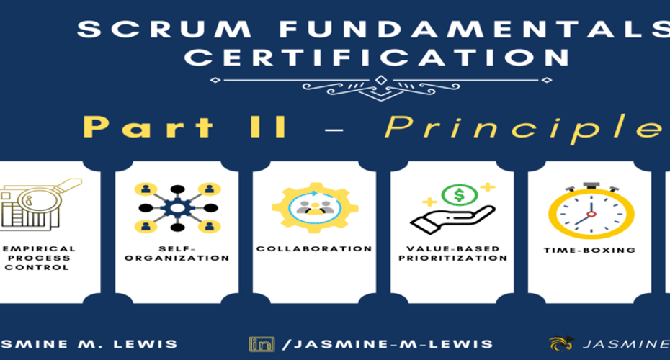Dev
2w
423

Image Credit: Dev
Scrum Fundamentals Certification (SFC) | Study Guide - Part II: Scrum Principles
- Scrum is an agile methodology that uses empirical process control to deliver products when clear planning and details are not present at the beginning of or midway in development. There are six Scrum principles that serve as the foundation of the Scrum framework and can be applied to any project.
- The first principle of Scrum is empirical process control which pursues learning through observation and experimentation based on transparency, inspection, and adaption.
- Scrum relies on transparency components including artifacts like the project vision statement, prioritized product backlog, sprint backlog, and release planning schedule; meetings like sprint planning, daily standup, sprint review, retrospect sprint, and release planning; and information radiators including sprint burndown chart, scrumboard, and sprint burnup chart.
- Scrum encourages self-organization allowing team members to deliver greater value because Scrum embraces the idea that employees are self-motivated and seek greater responsibility. Scrum's leadership style is “supporting leadership” which prioritizes Scrum Team results.
- Collaboration is the Scrum core team that works together and liaises with business stakeholders to create and validate project deliverables.
- Value-based prioritization is a core principle of Scrum, focusing on delivering maximum business value in a minimum time span. The prioritization process ensures that the most effective tools are used to achieve the greatest value quickly.
- Time-boxing is the Scrum concept of establishing a predetermined time duration for every process and activity within a Scrum project, which helps prevent excess and insufficient work while preventing wasted time on unclear tasks.
- Iterative development is a Scrum principle to achieve the goal of delivering maximum business value in a minimum time span and deconstructs complex projects over the project's duration while using Refine Prioritized Product Backlog and Plan and Estimate phase processes.
- Scrum Fundamentals Certification (SFC) exam necessitates learning six Scrum principles that serve as the foundation of the Scrum framework.
- Scrum principles can be applied to any project to help team members learn, collaborate, prioritize, and carry out projects in a dynamic and effective way.
Read Full Article
25 Likes
For uninterrupted reading, download the app